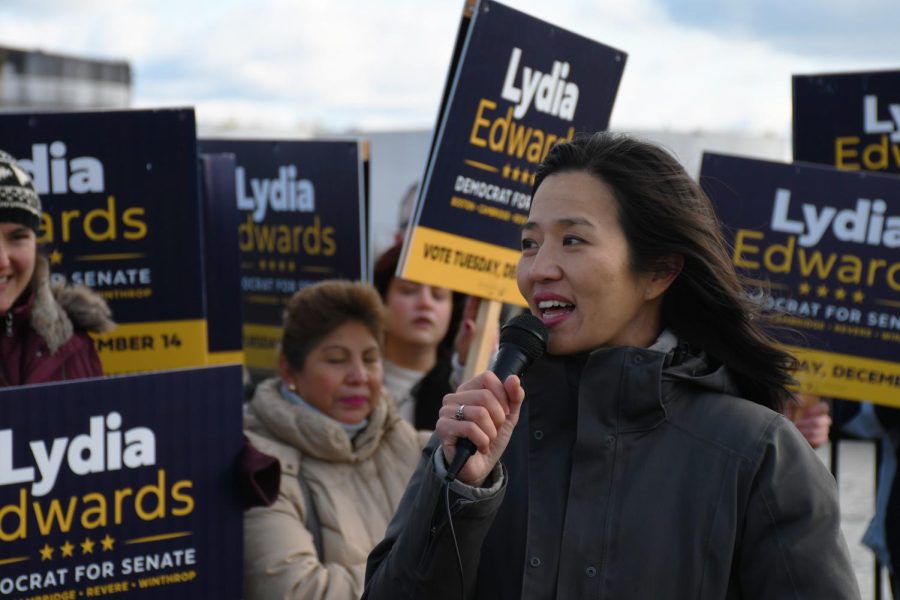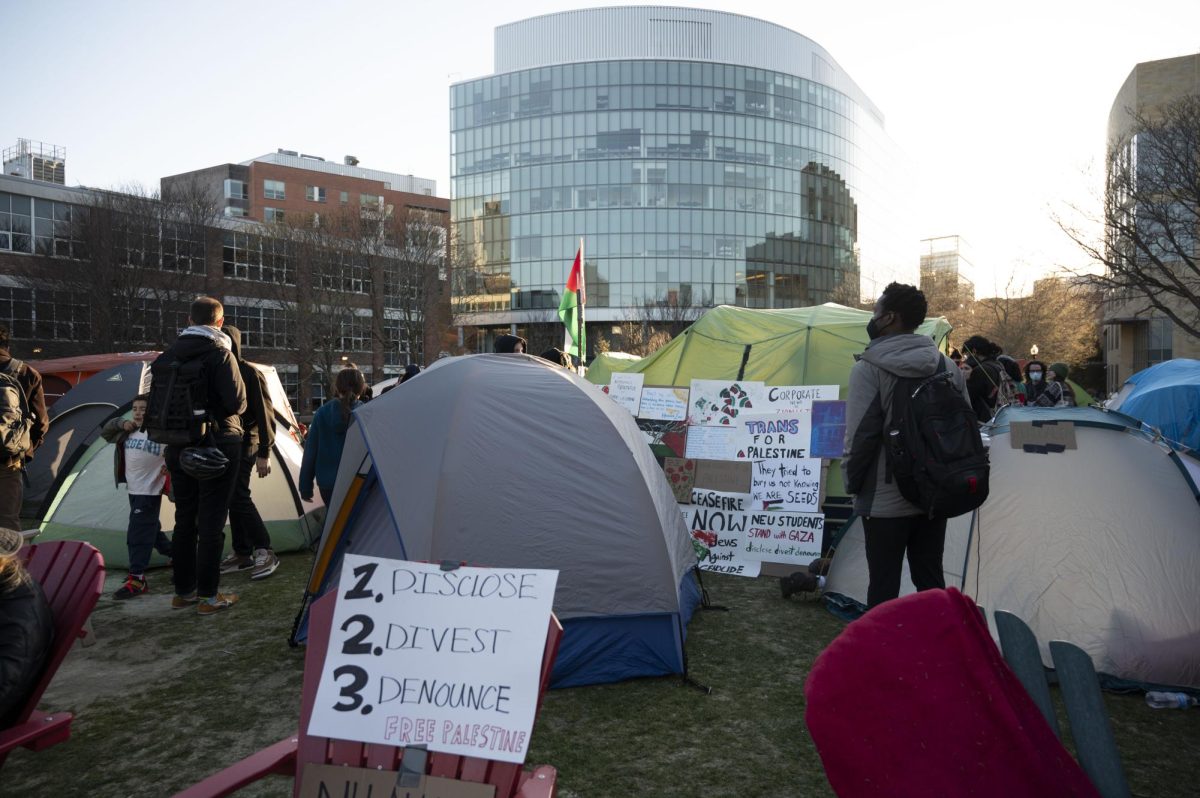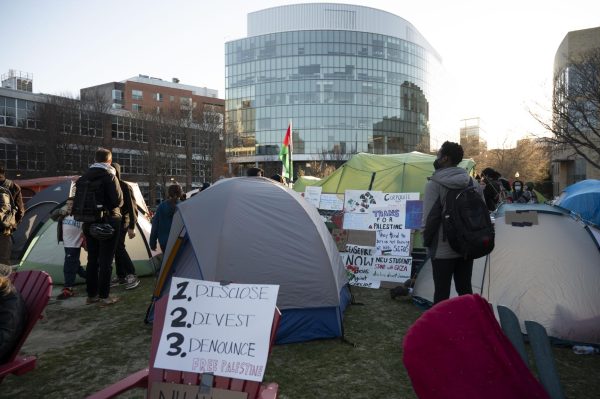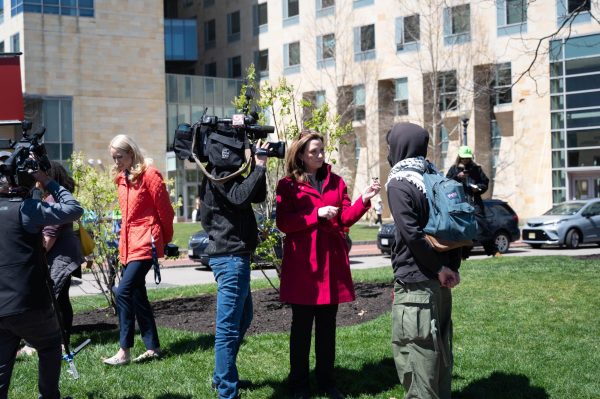Northeastern students think Michelle Wu symbolizes strides towards representation
Mayor Michelle Wu speaks to a crowd during a rally. Some students at Northeastern view Wu, an Asian American woman and mother of two, as a figure representing groups oftentimes not represented in politics.
April 17, 2023
Michelle Wu is the first of her kind in many ways. In November 2021, Wu became the first woman, person of color and Asian American elected mayor of Boston. She has been a critical politician both in Boston and nationwide. Wu describes her policy platform as a “promise to Boston residents” and strives to focus on issues surrounding race, economics and climate for the city and people of Boston.
Wu is the daughter of Taiwanese immigrants and often acted as an interpreter for her parents, who spoke Chinese. She also stepped in as a caregiver for her mother, who struggles with late-onset schizophrenia and helped raise her siblings. She later went on to attend Harvard University for both undergrad and law school.
March was Women’s History Month, a time to spotlight women who have made a difference. In her time as mayor, Wu has instituted a praised COVID-19 response, improved transportation with initiatives such as expanding bike paths and adding free bus routes and worked to house those struggling with addiction.
Many students view Wu as a figure representing groups oftentimes not represented in politics.
“I think Asians and Asian Americans are definitely underrepresented in politics,” said Sage Kumar, a fourth-year biology major and member of the Asian Student Union. “It’s so important for people to know ‘there’s a place for me’ when they see people who look like them represented in high roles.”
Wu also balances another important identity: motherhood. She is a mother of two boys and in her election night speech, opened with, “So one of my sons asked me the other night if boys can be elected mayor in Boston. They have been and they will again someday, but not tonight. On this day, Boston elected your mom because from every corner of our city, Boston has spoken.”
There is a popular belief that women’s professional and familial lives must be kept separate. Many think that a woman with children should not hold a high role like mayor.
“It’s assumed that mothers should take responsibility for childbearing. And as a result, mothers are viewed as incapable of governing or taking on other large roles,” said Alex Lincoln, a second-year psychology and human services combined major and the social media manager for the Feminist Student Organization at Northeastern. “I think it’s great that she can represent a more niche sector of the population, like mothers who face issues that are related to their identity.”
According to a poll conducted by the Pew Research Center in 2019, 19% of those surveyed said it’s better for a woman to not have children if she plans to pursue higher office.
“I think a lot of people need the wake-up call that just because you have kids doesn’t mean you can’t do anything else,” said Nicholas Abbatiello, a second-year communications and political science combined major and the communications manager for the Feminist Student Organization. “It’s really important to have roots in your community if you’re going to represent it. And I think having kids in Boston encourages you to want to make it a better place for the next generation.”
Abbatiello also mentioned another group underrepresented in politics: young people.
“There is an overrepresentation of heterosexual, white, cisgender, older men in politics,” he said.
Wu is 38 years old, which is considerably younger than many other current mayors of large cities. The mayor of New York City, Eric Adams, is 62, and Karen Bass, the mayor of Los Angeles, is 69 years old.
Wu has served as a role model for many marginalized and underestimated groups. However, there’s still a long way to go.
“Representation is really just the first step of elevating marginalized voices,” Kumar said. “Representation is just someone being there so after that they need to deliver on their promises and we still need to hold them accountable.”


















